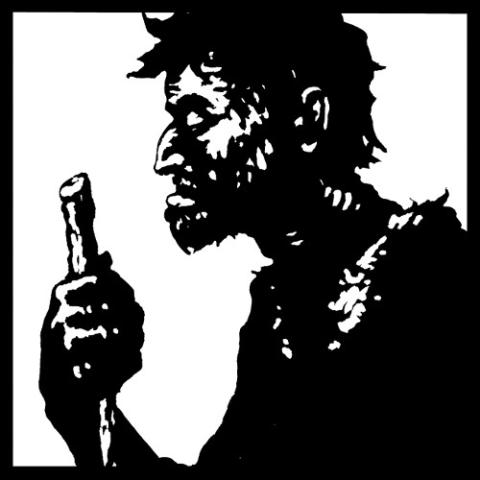
(Unsplash/Josh Boot)
"Who are you?" That question may be asking for the most basic information possible, or it could be requesting a much deeper response that can only be answered by an entire lifetime.
A lot depends on the context. The question is different when asked during a social event or at a doctor's office. When you appear at a school to pick up a child, there's a protective, legal reason for the question. If you are found walking the halls at the White House without a name tag, blocking traffic by holding up a sign in a busy intersection, or walking uninvited to the pulpit during Sunday Mass at the cathedral, it has other implications. In the latter cases, the question could well be stated as, "Just who do you think you are?" The tone implied in the last one is quite possibly the way the priests and Levites were talking to John.
Today's Gospel tells us that religious leaders from Jerusalem (think the Vatican's Congregation for the Doctrine of the Faith) went to find John the Baptist and asked, "Who are you?"
What on earth made John begin the dialogue by saying, "I am not the Christ"? It seems that John had only one thing on his mind. He was so focused on the coming of the Messiah that the first thing he thought of saying was not "I am the son of Zachariah," or "I'm a preacher," or "I'm a guy with an unusual diet and odd taste in clothes." No, John simply said, "I am not the Christ."
The ensuing interrogation makes it sound as if the officials thought they might be talking to a nut case. Picture them glancing at one another, subtly signaling who should ask the next question. One raises his eyebrows and asks, "So, then, are you Elijah? You know, the prophet who flew out of the world in a fiery chariot?"
When John says, "No, I am not," the next inquirer, trying for all the world to look as if he's taking the question seriously himself, says, "Are you Moses, the Prophet?"
John's quick "No" seems to have aimed at telling them to stop the games. So, they get serious: "Important people in Jerusalem have sent us to ask this. What should we tell them?"
We can almost picture John thinking, "Well, this is my chance. I'll tell them something they have to ponder and perhaps it will get through to them." So, he quotes Isaiah, "I am the voice crying out, 'Prepare the way for the Lord!' "
John's interrogators refused to take the bait. John was ready to involve them in a discussion of what God was doing in their midst. Instead, they brought the question back to his identity and qualifications as a person preaching hope and change. "If you aren't the Messiah or Elijah or Moses, why are you riling up the people?"
John met them at their level. If they weren't going to let their spiritual curiosity be piqued beyond suspicion of him, all he could say is, "You've not seen anything yet!"
This interaction implies that John had nothing to say about himself that did not relate to the coming Christ. From what we hear in the rest of the Gospels, that's a pretty accurate thumbnail portrait of this Advent prophet. He knew who he was as someone permeated by grace, impelled by the Spirit of God.

(Mark Bartholomew)
This third Sunday of Advent presents us with lots of possibilities for our pondering. On one hand, we might hear these readings as an invitation to introspection. They invite us to take the time to ask our ourselves when and how God's Spirit has welled up in us, confirming our faith and moving us to say yes to God, the future and the vocation we have received as Christians.
Getting in touch with our own sense of call is an important form of prayer as it both reminds us of past moments of grace and attunes us to those to come.
Today's readings also offer us criteria for discernment about the messages we hear in our world today. John awoke something in his people, and the religious leaders were concerned about it. We are surrounded by attention-getting calls to think and do, to buy or believe different messages. How do we discern?
Today's readings offer at least three criteria for knowing what is of God — in ourselves and others. Isaiah tells us that God's Spirit consistently moves on behalf of people who are left behind, the poor, the brokenhearted and the immobilized. Paul tells us that one essential mark of true believers is the joy that comes from knowing how good God is. John's testimony tells us that those moved by God always point beyond themselves.
Advertisement
The question we are left with from today's readings is, "How does your care for others, your joy and your awareness of God tell others who you are?"
[Mary M. McGlone, a Sister of St. Joseph of Carondelet, is writing the history of the St. Joseph sisters in the U.S.]
Editor's note: This Sunday scripture commentary appears in full in NCR's sister publication Celebration, a worship and homiletic resource. Request a sample issue at CelebrationPublications.org.








